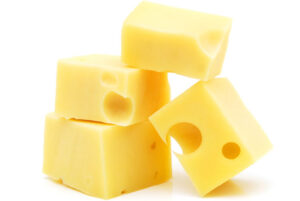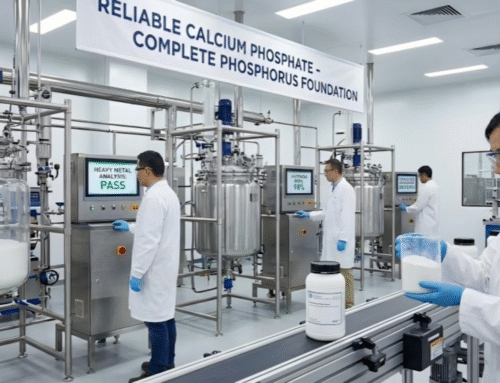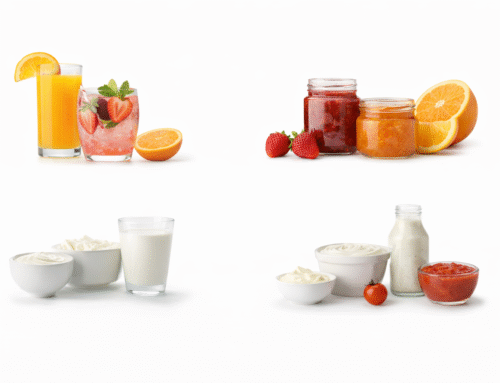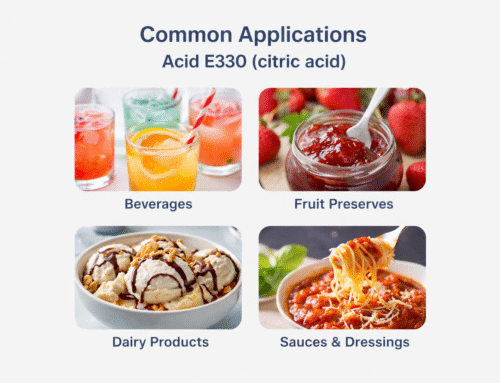Disodium Dihydrogen Pyrophosphate has garnered considerable attention as a protein stabilizer. This blog delves into the role of Disodium Dihydrogen Pyrophosphate, its function, its principles as a protein stabilizer in food, and its applications in various food products.
Brief Introduction
Disodium Dihydrogen Pyrophosphate (SAPP), also known as Sodium Acid Pyrophosphate, Acid sodium pyrophosphate, disodium pyrophosphate, is a white powder or granular, soluble in water and insoluble in ethanol. It is a food additive with the chemical formula Na2H2P2O7. Widely used in the food industry, Disodium Dihydrogen Pyrophosphate serves as a multifunctional additive, with one of its prominent functions being protein stabilization. The underlying principle of Disodium Dihydrogen Pyrophosphate as a protein stabilizer lies in its molecular structure, which allows it to interact with proteins, thereby maintaining their stability.
Protein Stabilization Function of Disodium Dihydrogen Pyrophosphate in Food
 Proteins are fundamental to the characteristics of many food products, including texture, taste, structure, and appearance. However, proteins are often sensitive to external factors such as temperature, pH levels, and changes in ionic strength. These variations can lead to protein aggregation, precipitation, or loss of functionality, significantly impacting the overall quality of food products. Therefore, protein stabilizers are essential to ensure that food maintains stable protein characteristics during processing and storage.
Proteins are fundamental to the characteristics of many food products, including texture, taste, structure, and appearance. However, proteins are often sensitive to external factors such as temperature, pH levels, and changes in ionic strength. These variations can lead to protein aggregation, precipitation, or loss of functionality, significantly impacting the overall quality of food products. Therefore, protein stabilizers are essential to ensure that food maintains stable protein characteristics during processing and storage.
The principles of Disodium Dihydrogen Pyrophosphate as a protein stabilizer encompass multiple facets:
- Electrostatic Attraction and Dispersing Action: Disodium Dihydrogen Pyrophosphate’s molecular structure contains negatively charged sites, while proteins typically possess positively charged sites. This charge difference results in mutual electrostatic attraction, forming a complex network. This aids in maintaining protein dispersion, preventing protein aggregation or precipitation. Under this attractive force, it acts as a stabilizing “force field,” evenly dispersing proteins in the food.
- pH Regulation: Protein stability is often pH-dependent. Inappropriately high or low pH conditions can cause protein precipitation or aggregation. Disodium Dihydrogen Pyrophosphate has the ability to regulate pH, ensuring that the food system remains within the pH range where proteins are most stable.
- Chelation of Metal Ions: Disodium Dihydrogen Pyrophosphate can chelate with metal ions present in the food. The presence of metal ions may lead to protein oxidation and denaturation, affecting their stability. By forming complexes, it reduces the impact of metal ions on proteins, mitigating their instability.
- Temperature Stability: Disodium Dihydrogen Pyrophosphate can enhance protein stability at different temperatures. During heating or cooling processes, proteins are prone to denaturation or aggregation. The presence of it helps reduce the risk of denaturation, ensuring that proteins remain stable under varying temperature conditions.
Application in Food
Disodium Dihydrogen Pyrophosphate, as a protein stabilizer, finds applications in various food manufacturing processes. Some common examples include:
- Dairy Products: In the production of dairy products such as yogurt and cheese, it helps maintain protein dispersion, ensuring product texture and mouthfeel.
- Meat Products: In the preparation of meat products like sausages and ham, it stabilizes the proteins within the meat, ensuring even distribution.
- Desserts: When making desserts such as mousses and cheesecakes, it can be used to stabilize proteins, preserving the dessert’s texture and mouthfeel.
- Protein Drinks: As a stabilizer in protein beverages, it contributes to maintaining uniformity and texture in the drinks.
In conclusion, Disodium Dihydrogen Pyrophosphate as a protein stabilizer works in food to maintain protein stability, preventing aggregation, precipitation, or denaturation, thereby enhancing the quality and texture of food products. It plays a significant role in dairy products, meat products, desserts, and protein beverages, ensuring that proteins remain in their optimal state.
Guizhou Lvyin Biotech Co., Ltd can provide multi-specification SAPP products according to your needs. If you are interested in it, would like to know more about the product, or request a COA, please reach out to [email protected].




